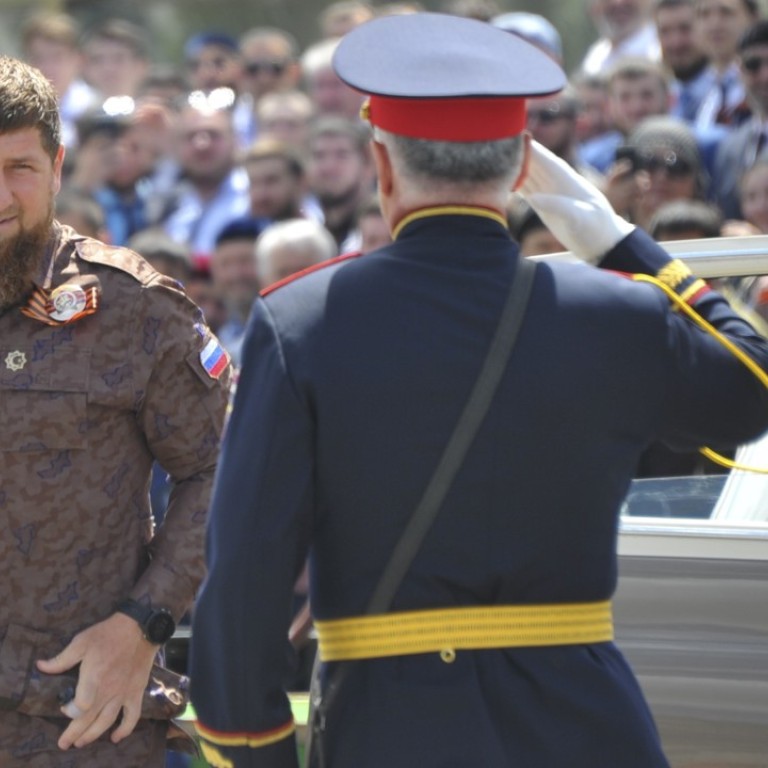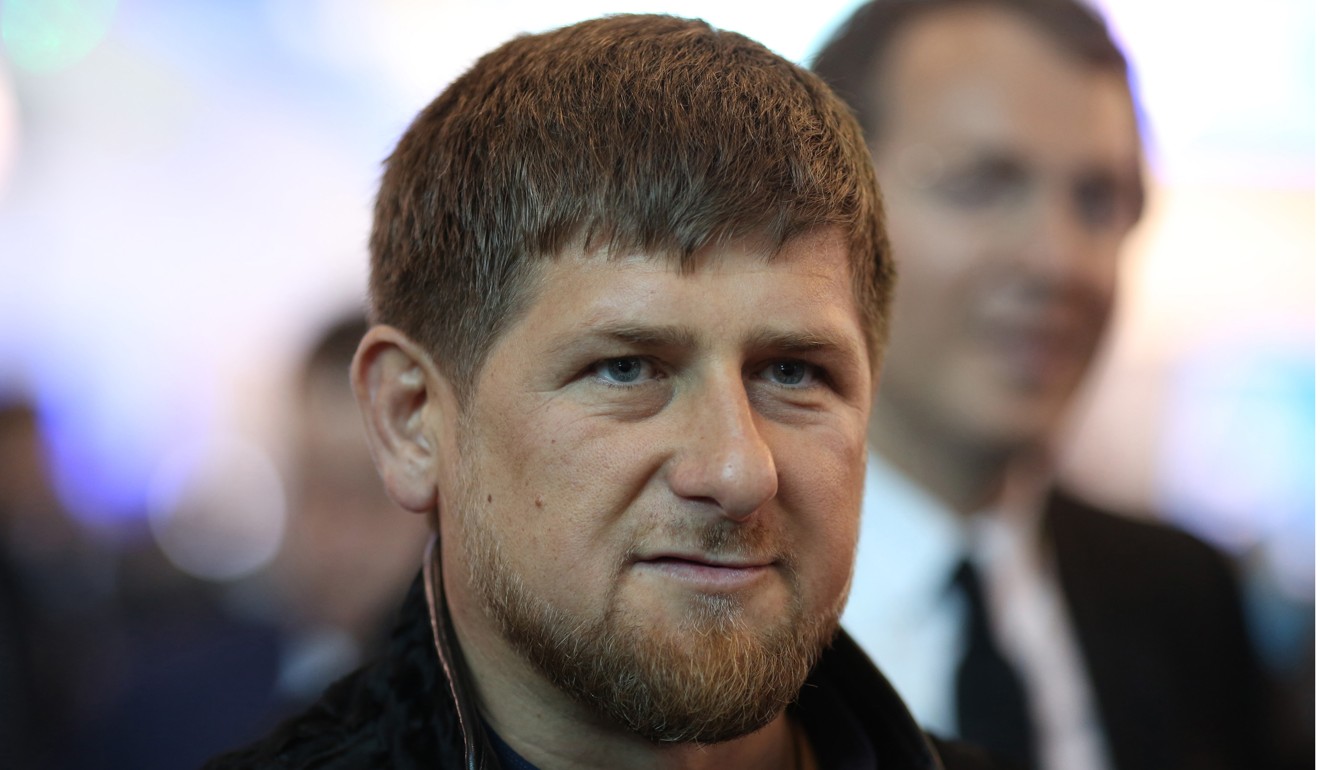
How Chechnya’s strongman leader is using the World Cup to strengthen his hand in the Muslim world
Ramzan Kadyrov, who invited the Egyptian national soccer team to train in Chechnya, is Russia’s point man in a bid to expand influence in the Middle East
There was a two-humped camel. Fireworks. A 3-D laser light show and the crown prince of Abu Dhabi.
That was how Russia’s Chechnya region opened a grand, sand-coloured hotel this month in its capital, Grozny. Styled like an Arabian marketplace, the luxurious piece of real estate is the first in the predominantly Muslim republic to be built with foreign funding. And, like other upcoming ventures, the money came from the Arab world.
In early June, the hotel will receive its maiden visitors, Egypt’s national soccer team, which is training in Chechnya for the World Cup. While no matches will be played in the region, Chechen leader Ramzan Kadyrov’s invitation, and the acceptance by the Egyptian team, are significant, coming as the strongman intensifies his ambitions in the Middle East.
Culturally, Chechen officials say, it makes sense for Egypt to have a base camp in the small region in the Russian North Caucasus: It will be near mosques, halal food and a cadre of local government staff who have learned Arabic abroad.
“They are Muslims, we are Muslims. We’re both Sunni,” said information minister Jambulat Umarov, as preparations across the city were underway for the start of Ramadan. Referring to Egypt’s star player, who is known for diving to the pitch in prayer after each goal, Umarov said, “I think Mohamed Saleh will be happy.”
On a recent visit to the hotel, owned by a company based in Abu Dhabi and a stone’s throw from the Akhmat Arena stadium, where Egypt’s players will practise, plastic film was being peeled from the carpets and a final chandelier fitted in its altitudinous foyer.

Now, he is emerging as the face of Russia’s large minority of 20 million Muslims.
In the mould of his benefactor, President Vladimir Putin, Kadyrov has built a highly personalised system of rule, and critics accuse him of running the small republic of 1 million people as a fiefdom. His decade-long tenure has been marked by allegations of torture and collective punishments. A man of contrasts, his tactics are both uncompromising and populist in nature.
This is a very smart PR campaign. Egypt for [Kadyrov] is yet another window to independently get out into the global Muslim space
For a Russia already resurgent on the global stage, increased influence in the Middle East, home to a web of Soviet-era alliances, is crucial for the Kremlin to counter Western dominance and push for Russian interests.
Barrel-chested at 41, Kadyrov sports a flowing auburn beard together with a penchant for tracksuits and exotic pets. His expanding role serves the Kremlin well, said Alexei Malashenko, chief researcher at the Moscow-based Dialogue of Civilisations Research Institute.
“This is a very smart PR campaign,” Malashenko said. “Egypt for Ramzan is yet another window to independently get out into the global Muslim space.”
Malashenko said Kadyrov’s personal ambition is encouraged by Putin in return for stability in the turbulent region.
The two “need each other like twins,” Malashenko said. “Imagine for a second that there is no Ramzan, that he gets ill or dies – there will be a civil conflict there, a civil war.”
Kadyrov’s blossoming friendship with the UAE’s de facto ruler, Sheikh Mohammed bin Zayed al-Nahyan, led to last year’s creation of the Zayed Fund, set up in Grozny to support local businesses. It was the first Russian-Arab project of its kind. In April, direct flights between Grozny and the UAE were established by Sharjah-based carrier Air Arabia. Across from the city’s mosque, one of Europe’s largest, work is underway for a new, gleaming skyscraper in the style of a medieval defence tower.
Besides cultivating business ties with Arab countries, Kadyrov has also led solidarity rallies for Rohingya Muslims outside Burma’s embassy in Moscow, sent a Chechen military police battalion to Syria, renovated a mosque in Aleppo, and given amnesty to the wives and children of local Islamic State fighters.
“It seems like Putin delegated those powers to Kadyrov,” said Beslan Visambiev, who is the Zayed Fund’s training and marketing manager.
Human rights defenders say the sleek Dubai-esque skyline and immaculate parks in central Grozny – not a mark of war remains in a city that was almost destroyed – come with a heavy price for those who live in Chechnya, and they have sounded the alarm over the region’s role in the world’s top sporting event.
Last year, Chechnya was back in the headlines after reports that officials had conducted a brutal purge of gay men, sparking global outrage and prompting a coordinated international effort to grant the men refuge abroad. Kadyrov was unbothered. “We don’t have any gays” was his response.
Parallels to Egypt’s recently expanded crackdown on its gay community have not been lost on rights defenders. Before Egypt chose to be based in Chechnya, Human Rights Watch sent a letter to Fifa, the global soccer federation, urging it to lobby Egyptian authorities against a proposed anti-LGBT law.
A cohort of rights groups, including Human Rights Watch and Amnesty International, have also called on Fifa to intervene in Chechnya, where the head of the region’s last remaining rights organisation is behind bars on what they say are trumped-up charges. At the start of the year, Oyub Titiev, who ran the local chapter of the rights group Memorial, was detained when police said they found marijuana on him. The 60-year-old faces a 10-year sentence. His predecessor, Natalia Estemirova, was kidnapped nine years ago, her bullet-riddled body later dumped by the road.
“Staggering international pressure made President Putin raise the issue of the anti-gay purge with Ramzan Kadyrov, and the purge was suspended,” said Tanya Lokshina, head of Human Rights Watch in Russia. “Now we want the same thing to happen in the case of Titiev.”

